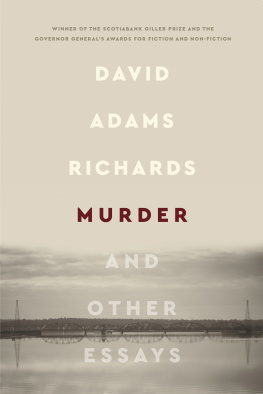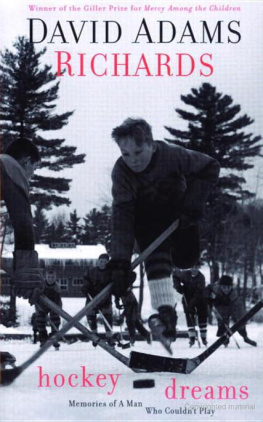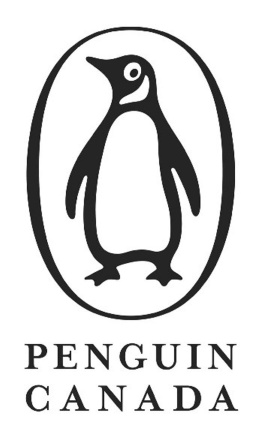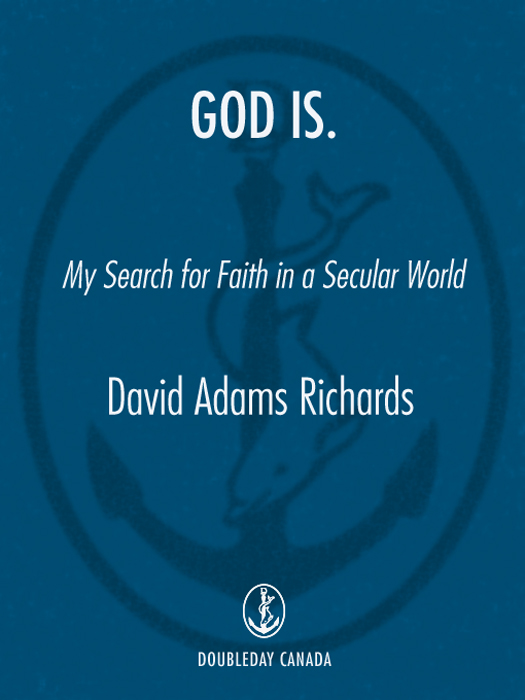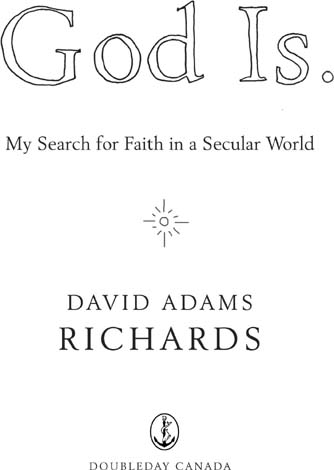David Adams Richards - God Is.: My Search for Faith in a Secular World
Here you can read online David Adams Richards - God Is.: My Search for Faith in a Secular World full text of the book (entire story) in english for free. Download pdf and epub, get meaning, cover and reviews about this ebook. year: 2009, publisher: Doubleday Canada, genre: Religion. Description of the work, (preface) as well as reviews are available. Best literature library LitArk.com created for fans of good reading and offers a wide selection of genres:
Romance novel
Science fiction
Adventure
Detective
Science
History
Home and family
Prose
Art
Politics
Computer
Non-fiction
Religion
Business
Children
Humor
Choose a favorite category and find really read worthwhile books. Enjoy immersion in the world of imagination, feel the emotions of the characters or learn something new for yourself, make an fascinating discovery.

- Book:God Is.: My Search for Faith in a Secular World
- Author:
- Publisher:Doubleday Canada
- Genre:
- Year:2009
- Rating:5 / 5
- Favourites:Add to favourites
- Your mark:
God Is.: My Search for Faith in a Secular World: summary, description and annotation
We offer to read an annotation, description, summary or preface (depends on what the author of the book "God Is.: My Search for Faith in a Secular World" wrote himself). If you haven't found the necessary information about the book — write in the comments, we will try to find it.
David Adams Richards, one of Canadas most beloved and celebrated authors, has been wrestling with questions of morality, faith, and religion ever since he was a child. They have always informed his fiction. Now he examines their role in his own life and spells out his own belief, in what is his most self-revealing work to date. With characteristic honesty, Richards charts his rocky relationship with his cradle Catholicism, his battles with personal demons, his encounters with men who were proud to be murderers, and the many times in his life when he has been witness to what he unapologetically calls miracles. In this subtly argued, highly personal polemic, David Adams Richards insists that the presence of God cannot be denied, and that many of those who espouse atheism also know that presence, though they would not admit it to anyoneincluding themselves. Every follower of todays battle between faith and atheism, and every lover of David Adams Richards superb fiction, will find God Is revelatory.
I believe that all of us, even those who are atheists, seek Godor at the very least not one of us would be unhappy if God appeared and told us that the universe was actually His creation. Oh, we might put Him on trial for making it so hard, and get angry at Him, too, but we would be very happy that He is here. Well, He is.
Questions of faith, morality, the role of unseen forces in our destinies, have been central to the fiction of David Adams Richards. Now he directly addresses what these questions have meant to him in his own life, and what he has come firmly to believe. He has always been a courageous and uncompromisingly honest writerbut never more so than here.
David Adams Richards: author's other books
Who wrote God Is.: My Search for Faith in a Secular World? Find out the surname, the name of the author of the book and a list of all author's works by series.

